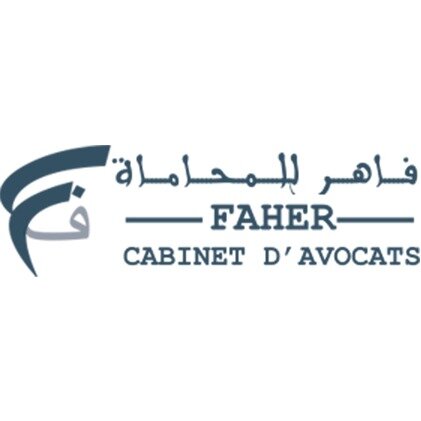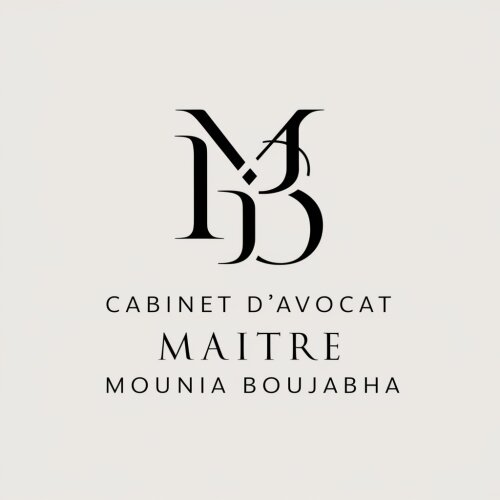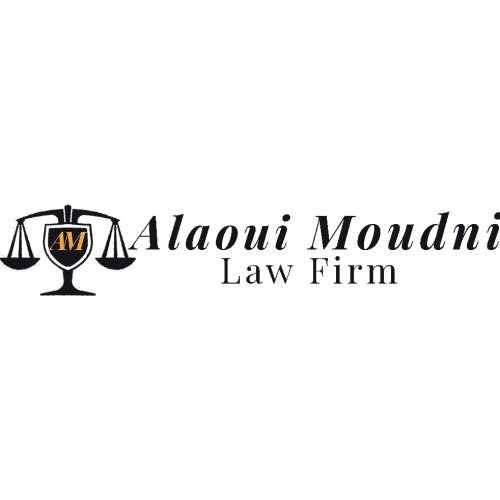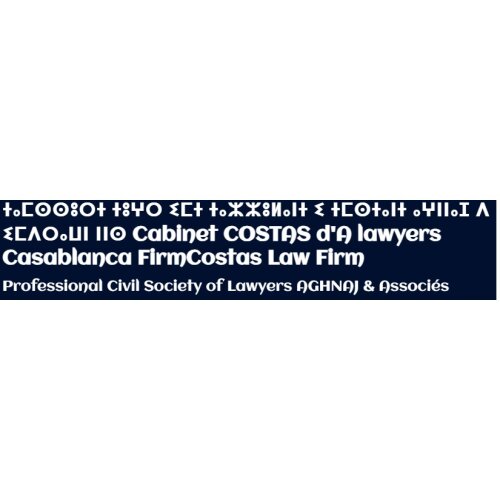Best Faith-Based Law Lawyers in Casablanca
Share your needs with us, get contacted by law firms.
Free. Takes 2 min.
List of the best lawyers in Casablanca, Morocco
About Faith-Based Law in Casablanca, Morocco
Faith-Based Law in Casablanca, Morocco, primarily refers to the legal principles and judicial practices grounded in Islamic law or Sharia. Morocco, as an Islamic state, incorporates Sharia principles, particularly in areas concerning personal status, family law, and inheritance. The country's legal system is a mix of civil law influenced by the French legal system and Islamic law, particularly in personal matters. As a result, issues such as marriage, divorce, child custody, and inheritance are often addressed through religious frameworks. Therefore, understanding Faith-Based Law is crucial for individuals navigating these aspects of life in Casablanca.
Why You May Need a Lawyer
There are several situations where individuals may require legal assistance in Faith-Based Law. These include:
- **Marriage and Divorce:** Arranging marriages, drafting marital contracts, or seeking divorce can demand thorough knowledge of Islamic principles as well as Moroccan civil procedures.
- **Inheritance Disputes:** Determining inheritance shares according to Islamic law can be complex, particularly when the assets are diverse or international.
- **Child Custody and Guardianship:** Resolving custody matters requires understanding of both religious duties and the best interest of the child within a legal framework.
- **Wills and Endowments (Waqf):** Creating legally recognized wills or managing religious endowments requires specific legal compliance with Faith-Based and national laws.
Consulting with a lawyer who specializes in Faith-Based Law ensures that these situations are handled appropriately and in alignment with Sharia principles while considering Moroccan statutory requirements.
Local Laws Overview
In Casablanca, the key aspects of laws that intersect with Faith-Based Law include:
- **Family Code (Moudawana):** This is the primary legal code regulating family issues in Morocco. It incorporates Islamic principles, especially regarding marriage, polygamy, and child custody.
- **Inheritance Laws:** Sharia principles predominantly govern inheritance. Morocco follows specific rules on the division of property among heirs, which can include designated shares for male and female relatives.
- **Marriage Contracts:** Islamic law allows for stipulations within marriage contracts, covering dowry agreements and spousal expectations, which can have legal weight in court if disputes arise.
- **Religious Endowments and Non-Profit Organizations:** Religious endowments, or Waqf, must comply with specific regulations to ensure they are managed in accordance with both Islamic principles and national laws.
Frequently Asked Questions
How does Islamic law affect marriage contracts in Casablanca?
Islamic law allows for certain stipulations within marriage contracts, focusing on the rights and obligations of both spouses. These stipulations can address issues such as dowry, financial support, and conditions for divorce.
What inheritance disputes typically arise under Faith-Based Law?
Common disputes include disagreements over the shares of inheritance due to each heir, interpretation of testamentary dispositions, and division of complex, multi-jurisdictional estates.
Is polygamy allowed in Casablanca?
Polygamy is legally permitted under Moroccan law, but it requires judicial authorization, and the existing wife must be informed and consent must be provided based on specific conditions defined by law.
How are child custody disputes resolved under Faith-Based Law?
Custody decisions consider the child's welfare above all, with the mother typically gaining custody for young children unless otherwise determined by the court.
Can women initiate divorce in Morocco?
Yes, women can initiate divorce under certain conditions provided in the Moudawana, such as through mutual consent or for reasons like non-support or harm.
What is the process for drafting an Islamic will?
An Islamic will (wasiyyah) must comply with Sharia principles regarding inheritance shares and may only include bequests to non-heirs up to one-third of the estate, unless all heirs consent otherwise.
Are there legal protections for non-Muslims in family law matters?
Yes, Morocco offers legal pathways for non-Muslims to handle family law matters according to their religious or personal principles, but these might require specific legal arrangements or representation.
What is a Waqf and how is it managed?
A Waqf is a religious endowment made by a Muslim for charitable purposes. Its management must align with Islamic laws regarding longevity, purpose, and irrevocability.
How do local courts enforce Sharia-based rulings?
Local courts integrate Sharia principles with civil law elements, particularly in personal status cases, ensuring rulings are consistent with both religious and national legal frameworks.
Who can help resolve religious versus civil law conflicts?
Lawyers specializing in Faith-Based Law, along with consulting with religious scholars, can help mediate conflicts and ensure compliance with both legal systems.
Additional Resources
- **Ministry of Justice of Morocco:** Provides information on legal rights and resources across Morocco.
- **Local Bar Associations:** Offer directories of lawyers who specialize in Faith-Based and family law.
- **Community Islamic Centers:** Often provide guidance or can refer legal professionals familiar with Sharia.
- **Legal Aid Clinics:** Some local universities or NGOs may offer free legal advice or services for low-income individuals.
Next Steps
If you require legal assistance in Faith-Based Law, consider the following steps:
- **Identify Your Needs:** Clearly define what legal issues you are facing to better communicate with professionals.
- **Consult a Specialist Lawyer:** Seek out lawyers in Casablanca specializing in Faith-Based Law to provide informed guidance.
- **Gather Relevant Documents:** Prepare any necessary documentation related to your case to expedite legal consultations and processes.
- **Research Local Laws and Resources:** Familiarize yourself with local legal structures and support organizations to enhance your understanding of available options.
Lawzana helps you find the best lawyers and law firms in Casablanca through a curated and pre-screened list of qualified legal professionals. Our platform offers rankings and detailed profiles of attorneys and law firms, allowing you to compare based on practice areas, including Faith-Based Law, experience, and client feedback.
Each profile includes a description of the firm's areas of practice, client reviews, team members and partners, year of establishment, spoken languages, office locations, contact information, social media presence, and any published articles or resources. Most firms on our platform speak English and are experienced in both local and international legal matters.
Get a quote from top-rated law firms in Casablanca, Morocco — quickly, securely, and without unnecessary hassle.
Disclaimer:
The information provided on this page is for general informational purposes only and does not constitute legal advice. While we strive to ensure the accuracy and relevance of the content, legal information may change over time, and interpretations of the law can vary. You should always consult with a qualified legal professional for advice specific to your situation.
We disclaim all liability for actions taken or not taken based on the content of this page. If you believe any information is incorrect or outdated, please contact us, and we will review and update it where appropriate.











